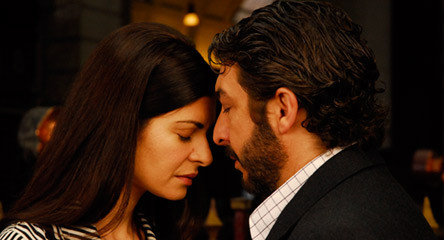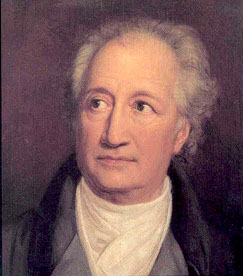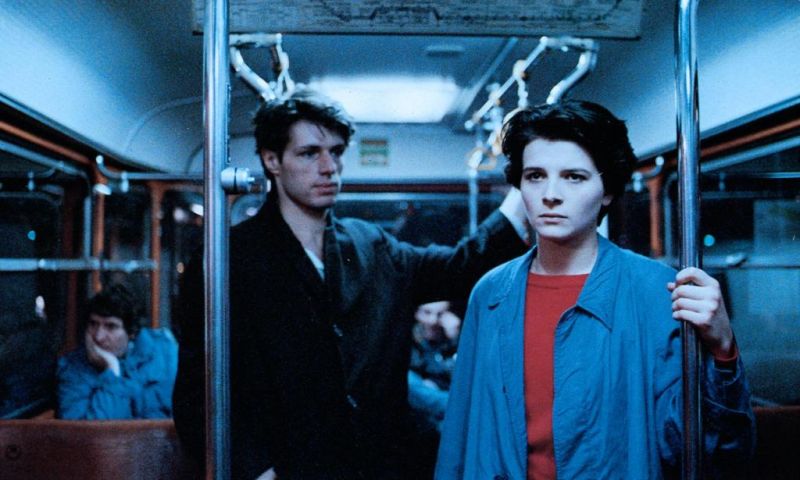A story ("A Country Doctor") by this German-language writer. You can read the original here.
 I was in quite a quandary: before me lay an urgent trip; a deathly ill patient waited in a village ten miles away; heavy snowdrifts filled the space between me and him; I had a light, large-wheeled carriage well-suited for our country roads; wrapped in furs, my medical kit in hand, I stood in the courtyard ready to travel; but a horse, we needed a horse. Last night my own horse had perished from overexertion in this icy winter, and now my domestic was scampering around the village trying to borrow another one. Yet I knew it was hopeless; the snow was accumulating in larger and increasingly sturdier heaps, and I was standing there without a purpose. At the gate my domestic appeared alone, her lantern swinging, and I shouldn't have been surprised. Who would loan out his horse for such a trip? Once again I trudged through the courtyard and found no possibilities. Annoyed and distracted, I kicked open the dilapidated door of the pig stall unused now for many years. It opened only to snap back and forth on its hinge; from within came warmth and horse-like odors, and I espied a dim stall lantern hanging on a cord. A man was curled up in a lowly crate, his blue-eyed face open to the light. "Should I yoke the horses?" he asked, crawling forward on all fours. I didn't know what to say and only bent over to see what else was lurking in the stall. The domestic was standing next to me. "One has no idea what's stored in one's own house!" she said, and we both laughed.
I was in quite a quandary: before me lay an urgent trip; a deathly ill patient waited in a village ten miles away; heavy snowdrifts filled the space between me and him; I had a light, large-wheeled carriage well-suited for our country roads; wrapped in furs, my medical kit in hand, I stood in the courtyard ready to travel; but a horse, we needed a horse. Last night my own horse had perished from overexertion in this icy winter, and now my domestic was scampering around the village trying to borrow another one. Yet I knew it was hopeless; the snow was accumulating in larger and increasingly sturdier heaps, and I was standing there without a purpose. At the gate my domestic appeared alone, her lantern swinging, and I shouldn't have been surprised. Who would loan out his horse for such a trip? Once again I trudged through the courtyard and found no possibilities. Annoyed and distracted, I kicked open the dilapidated door of the pig stall unused now for many years. It opened only to snap back and forth on its hinge; from within came warmth and horse-like odors, and I espied a dim stall lantern hanging on a cord. A man was curled up in a lowly crate, his blue-eyed face open to the light. "Should I yoke the horses?" he asked, crawling forward on all fours. I didn't know what to say and only bent over to see what else was lurking in the stall. The domestic was standing next to me. "One has no idea what's stored in one's own house!" she said, and we both laughed.
"Hullo, brother! Hullo, sister!" said the stable-boy as two horses came out of the doorway which kept them restless. They were powerful and broad-shouldered beasts, their legs tight against their bodies, their well-formed heads sunken like camels, and they pushed themselves out only through the strength of their torsos. But then suddenly they stood up straight, their legs locked, their serried muscles evaporating in steam. "Help him," I said, and the willing domestic hurried to give the stable boy the carriage harness. But hardly had she reached him when the boy grabbed her and pressed her face to his. She screamed and fled to my side, her cheek bloodied by two rows of teeth. "You brute!" I cried out in anger, "do you want to taste my lash?" Then I remembered three things: that he was not from these parts, that I didn't know where he was from, and that he had willingly helped me when others had turned away. As if reading my thoughts, he took no umbrage at my threat but instead, still occupying himself with the horses, he turned towards me. "Climb in," he then said and, as it were, everything was indeed ready. I concluded that I had never ridden with so fine a team, and I climbed in. "I'll be the one driving, however, since you don't know the way," I said. "Certainly," he responded, then added: "In fact, I won't come along at all. I'll stay here with Rosa." "No!" screamed Rosa, and rightly sensing the inevitability of her fate, she raced back into the house. I heard her chain the door and bolt the lock; then I saw her in the hall running through the rooms and turning off all the lights to make herself unfindable. "You're coming along," I said to the boy, "or I won't travel at all, so urgent is the matter. And I have absolutely no intention of leaving you the girl as payment for my trip." "Giddy up!" said the boy, clapping his hands, and the carriage was yanked forward like lumber down a stream. Then I heard the boy's assault on my house gate, bursting and splitting, since all my senses, eyes and ears included, were filled to the brim with sounds of bustling activity.
But even that only lasted a moment. The next thing I knew, the patient's house gate opened as if directly across from my own. I was already there; the horses were standing and silent; the snowfall had ceased; moonlight was all around; the patient's parents came running out of the house; his sister was right behind them; I was quickly helped out of the carriage; from the cacophony of voices I understood nothing; the air was barely breathable in the patient's room; the neglected stove top emitted smoke; I wanted to crack open a window; but first, I needed to see my patient. Gaunt, feverless, neither cold nor warm, without a shirt and with empty eyes, my patient, a mere lad, lifted himself out of bed, hung his arms around my neck, and whispered in my ear: "Doctor, let me die." I looked around; no one seemed to have heard him. His parents stood on without as much as a word, bent slightly forward and anticipating my evaluation. His sister had brought a chair for my kit. I opened the kit and looked for my instruments; meanwhile, the lad kept groping from the bed in my direction to remind me of his request. Finally I found a pair of pincers, checked them in the candlelight and replaced them. "Yes," I thought blasphemously, "in such cases it is the gods who help, who send the missing horse, even a second one to compensate for the matter's urgency, who provide the stable boy as added assistance."
And here I thought of Rosa. What should I do? How could I save her? How could I pull her out from under that stable boy with her being ten miles away and my carriage chained to unwieldy horses? These horses who had now somehow loosened their straps; who, I still didn't know how, had pushed the windows in and stuck a head through each window and, undeterred by the family's screams, were watching the patient. "I'll come right back," I thought as if the horses were summoning me, but then I let the sister – who believed me to be dazed from the heat – wrest my fur coat from my shoulders. A glass of rum was prepared, the father clapped me on the back; the surrender of his beloved son justified such trust. I shook my head; nausea would have overcome me had I succumbed to his way of thinking; and for that reason alone I refused to drink. The mother stood beside the bed and beckoned to me. As a horse neighed loudly to the ceiling, I walked over and laid my head on the boy's chest as he shuddered beneath my wet beard. What I already knew was confirmed: the boy was healthy, a victim of some bad circulation and drowned in coffee by his solicitous mother perhaps, but healthy and best yanked out of bed. Not being an idealistic do-gooder, however, I left him lying there.
I am a district employee and bound to every inch of my duties' ambit, even when it becomes all too much. Badly paid, I am generous towards the poor and always ready to help. I also had to worry about Rosa, since the lad might be right and I too would die. What could I do here in this endless winter? My horse had perished and there was no one in the village from whom I might borrow another. I had to retrieve the harness from the pig stall; if I didn't have horses, perhaps I could ride with pigs. So it was. I nodded to the family. They knew nothing of the matter, and even if they had, they wouldn't have believed me. Writing prescriptions is easy, but getting along with people is much more difficult. Now my visit had come to an end; yet again had I been bothered unnecessarily, something to which, of course, I was well accustomed. I was well accustomed to having the whole district martyr me through my night buzzer. But this time, this time I had to surrender Rosa, that lovely girl who had lived for years in my house with hardly any attention on my part, such a sacrifice was too great. With sophistries I had to gain time to arrange my thoughts so as not to abandon this family who, try as they might, could not give Rosa back to me.
Yet as I closed my medical kit and waved for my fur, the family gathered together: the father sniffing about the rum glass in his hand; the mother, in all likelihood quite disappointed in me – but what do people really expect? – biting her lips, teary-eyed; the sister waving a thick, bloody handkerchief. Under certain circumstances, I could be persuaded to admit that the boy was in fact sick. I went to him. He smiled at me as if I were bringing him the heartiest of soups – oh, now both horses were neighing. Mandated from on high, the noise was supposed to facilitate the examination and now I found that, as it were, the boy was sick. In his right side near the hip he had a wound about the size of a human palm. Pink, in various shades, dark in its depth, bright along its edges, soft at its core, with irregular rivulets of blood, exposed like an open mine shaft. So it appeared from a distance; from close up there was an aggravation. Who could look upon it without whistling mildly? Worms, in length and force the equal of my little finger, in and of themselves pink but also sprayed with blood, were winding their way deeply ensconced within the wound, all with white heads and their many legs against the light. Poor lad, there was nothing to be done. I found your great wound; this flower across your ribs would be your destruction.
The family was happily gazing at me in action; the sister said as much to the mother; the mother to the father; the father to a few guests who were standing on tiptoe, balancing themselves with their arms spread wide as moonlight crept in through the open door. "Will you save me?" the boy whispered, gulping, still dazzled by the life in his wound. The people in my neighborhood were no different: always demanding the impossible from the doctor. They had already lost the old faith; their preacher sat at home disentangling and teasing his chasubles, one after the other. But the doctor had to accomplish everything with his tender surgical hand. Well, as you like it: I had never offered my services; you used me for holy ends, and I let that all occur. What better could I wish for, old country doctor, robbed as I was of my domestic? And they all came, the family and the village elders, and they disrobed me. A school choir led by a teacher stood before the house and sang an extremely simple melody to the following text:
Disrobe him, then he'll heal.
And if he fails, so kill him!
'Tis but a doctor, 'tis but a doctor.
Then I was disrobed and I looked upon the people, my head bent forward, my fingers in my beard. I was completely composed and superior to all, and things remained as such, although this helped me in no way since now they took me by my head and feet and carried me into bed. Against the wall, on the side of my wound, they laid me down. Then everyone left the room; the door was shut; the singing stopped; clouds appeared before the moon; the bed covers lay in warmth around me; and like shadows the horse's heads were swinging in the open windows.
"You know what," I heard spoken in my ear, "I have very little trust in you. You got shaken up somewhere, and you can't get back on your own two feet. Instead of helping, you're crowding me in upon my deathbed. I'd love to scratch your eyes out."
"Right," I said, "this is all very scandalous. Yet I'm a doctor. What should I do? Believe me, it's not any easier on me."
"Am I supposed to content myself with this apology? Oh, I suppose I'll just have to do so. I'll always have to do so. I came into the world with a lovely wound; this was the only provision I received."
"Young man," I said, "your mistake is that you have no perspective. I who have already been in all the hospital rooms far and wide, I say to you: your wound is not that bad. Two strokes with the sharp end of an axe. In the forest many cutters turn to the side and do not hear the axe fall, much less approach."
"Is that really the case or are you deceiving me in your febrile state?"
"That is most certainly the case. Take the word of a public health officer."
And he took it and fell silent. But now it was time to think of my escape. The horses were still loyally at their places. Clothes, fur, and medical kit were quickly rounded up; I didn't want to delay myself by putting on my things; the horses raced back as they had raced here, and in a way I was going to jump from his bed into my own. One of the horses stepped back from the window obediently; I threw the ball back into the carriage; the fur flew too wide; only one sleeve held on a hook – good enough. I swung myself onto the horse. Rubbing the straps loose, one horse barely tied to the other, the carriage straying behind, then the fur dragging in the snow. "Faster!" I said, but faster we did not go. Slowly like old men we drove through the snowy desert; for a long stretch behind us sounded the new, insane song of the children:
Be happy, you patients,
The doctor has come into your bed!
I had never come home like this; my booming practice was now lost; a usurper arrived, but unnecessarily since he could never replace me; in my house raged that repulsive stable boy; Rosa was his victim; I did not want to think of the consequences. Naked, exposed to the frost of this most unblissful of seasons, with earthly carriage and unearthly horses, I, old man, drove around. My fur hung behind on the carriage, but I couldn't reach it, and from the rabble of patients not one of them even moved a finger. Betrayed! Betrayed! Once you've followed the night buzzer mistakenly, there is no going back.
 Monday, April 21, 2014 at 03:02
Monday, April 21, 2014 at 03:02  Our protagonist is a certain Arthur Fernlee Markam, whom I ought to describe in extenso as his image will prove to be a monument amidst the plot's wafting winds. Markam is an English merchant ("essentially a cockney") whose abiding dream is "to provide an entire rig-out as a Highland chieftain." Markam is also a dutiful husband and father of three, if by dutiful one understands that while he needs his space and quiet every evening after a long and profitable business day, he buys his family all the best clothes and appurtenances so that they may join him in the glorification of their social status ("The prosperity of the business allowed them all sorts of personal luxuries, amongst which was a wide latitude in the way of dress"). Readers of these pages will know what I think of such persons, and they will also know what fate tends to befall them. In any case, Markam, as stereotypical a Philistine as one could possibly find in the annals of literature, decides that his crowning achievement as a man of culture is to don the tartan of a clan to which he has never belonged and parade around a Scots fishing village in full regalia. Some faint apprehension, however, prevents him from simply borrowing the Royal Stuart pattern – probably the only one Markam could ever distinguish from a pincushion. Instead, and just as appropriately, he orders for a "pretty stiff" check a custom design:
Our protagonist is a certain Arthur Fernlee Markam, whom I ought to describe in extenso as his image will prove to be a monument amidst the plot's wafting winds. Markam is an English merchant ("essentially a cockney") whose abiding dream is "to provide an entire rig-out as a Highland chieftain." Markam is also a dutiful husband and father of three, if by dutiful one understands that while he needs his space and quiet every evening after a long and profitable business day, he buys his family all the best clothes and appurtenances so that they may join him in the glorification of their social status ("The prosperity of the business allowed them all sorts of personal luxuries, amongst which was a wide latitude in the way of dress"). Readers of these pages will know what I think of such persons, and they will also know what fate tends to befall them. In any case, Markam, as stereotypical a Philistine as one could possibly find in the annals of literature, decides that his crowning achievement as a man of culture is to don the tartan of a clan to which he has never belonged and parade around a Scots fishing village in full regalia. Some faint apprehension, however, prevents him from simply borrowing the Royal Stuart pattern – probably the only one Markam could ever distinguish from a pincushion. Instead, and just as appropriately, he orders for a "pretty stiff" check a custom design:



